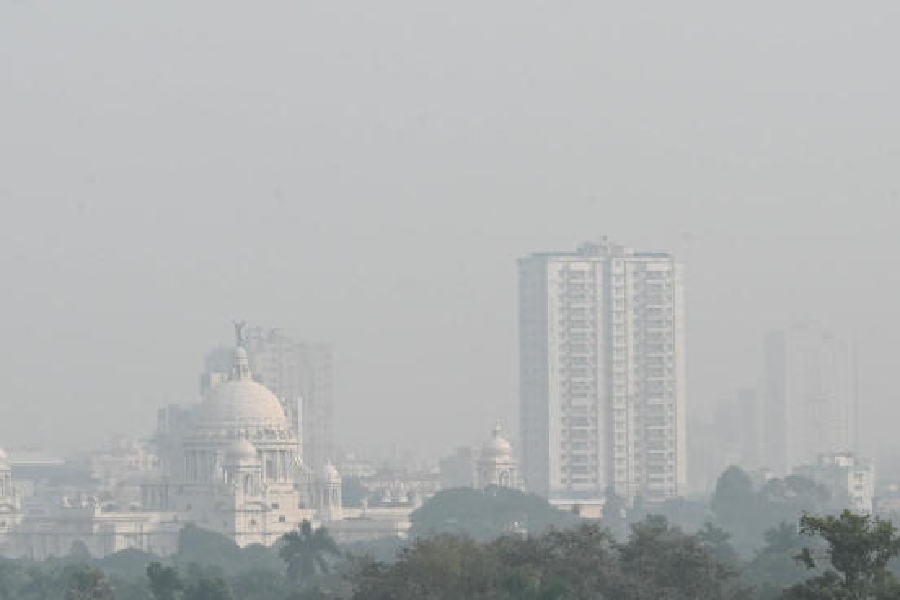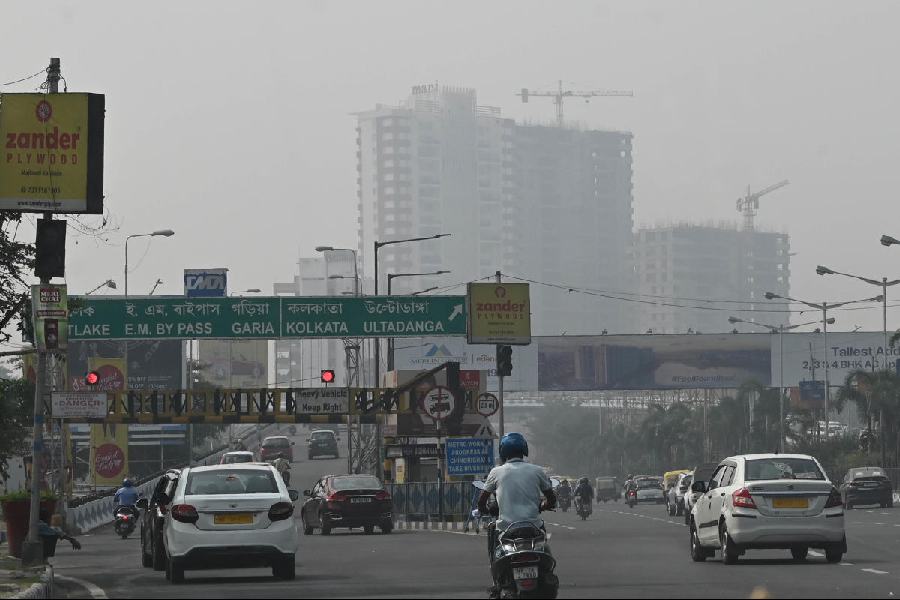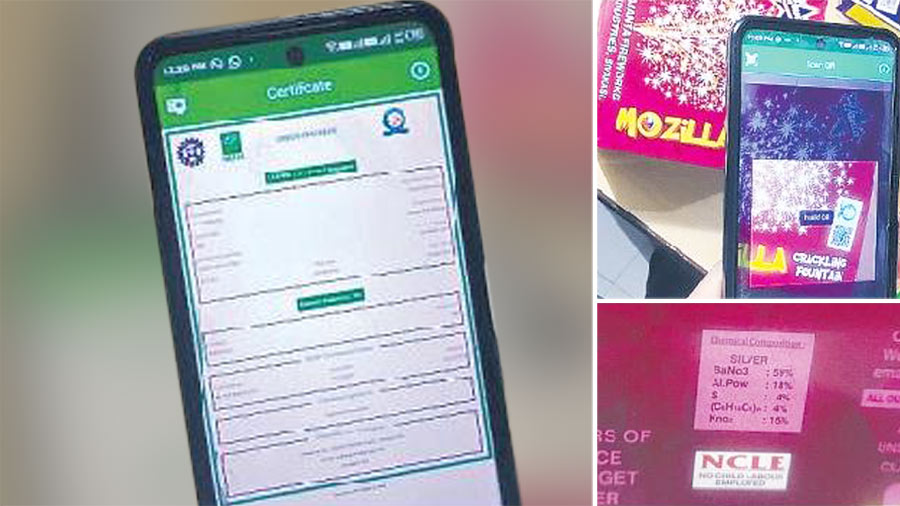A senior advocate practising at the Supreme Court who was among the spectators during the India-South Africa match at Eden Gardens on November 5, has sounded a note of caution ahead of possible further deterioration in air quality during the 50-over ICC Men’s Cricket World Cup semi-final match at the same venue on November 16.
Senior advocate Gopal Sankarnarayanan has opined that if the West Bengal government does not exercise enough caution and fireworks are burst on November 16 in violation of norms and the time-bar imposed on Diwali, it might lead to international embarrassment and criticism of the kind Delhi and Mumbai have faced after World Cup players were seen using inhalers (Ben Stokes and his England teammates) or spoke out (Rohit Sharma), not to mention health hazards for all Kolkatans.
On November 7, the air quality in Kolkata had dropped to “poor” in five monitoring stations in what could be the start of another season of poor or worse air quality.
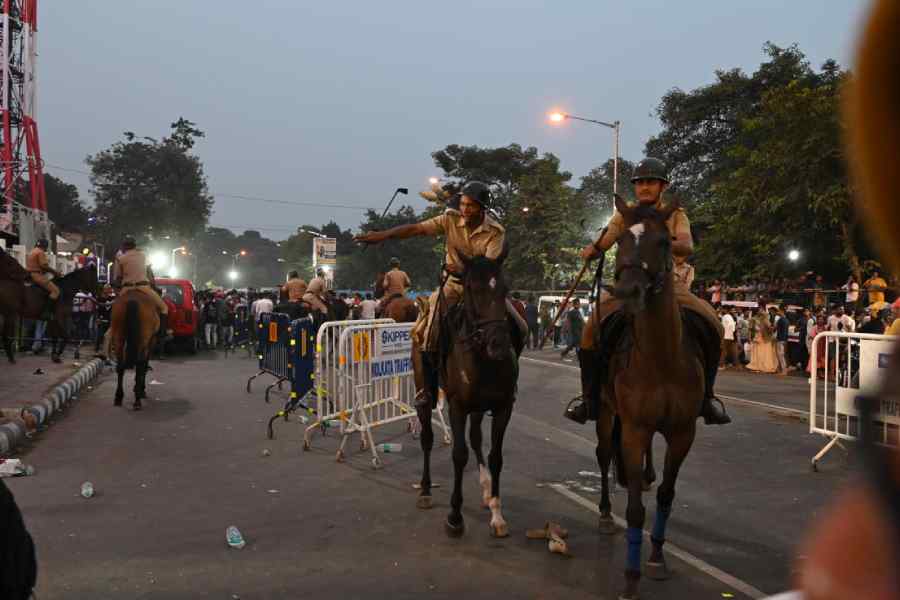
Mounted police on duty outside the Eden on November 5 TT Archives
Before that, a young Mounted Police horse, named Voice of Reason, which was on duty outside the Eden Gardens on November 5 died after colliding with vehicles, hours after several on-duty horses started running helter-skelter hearing the sound of firecrackers burst outside the stadium after India’s thumping win over South Africa.
Sankarnarayanan is the petitioner’s lawyer in the landmark Arjun Gopal noise pollution case in the apex court that has led to banning of all kinds of fireworks in the country barring green fireworks in 2018.
Recently, the Sri Lanka versus Bangladesh match came under pollution scrutiny because of Delhi’s poor air quality, but escaped disruption as Delhi’s air quality improved to an extent on the match day.
“I was in Kolkata and at Eden Gardens during the recent India South-Africa match and felt the poor air quality. During the semi-final match, the pollution level, in any way, is likely to further deteriorate and unless the fireworks bursting during Diwali remain under control, the situation may spin out of hand and bring a bad name to Kolkata and India,” Sankarnarayanan told The Plurals on Friday.
The semi-final match between South Africa and Australia is scheduled on November 16, while the Diwali and Kali Puja are on November 12.
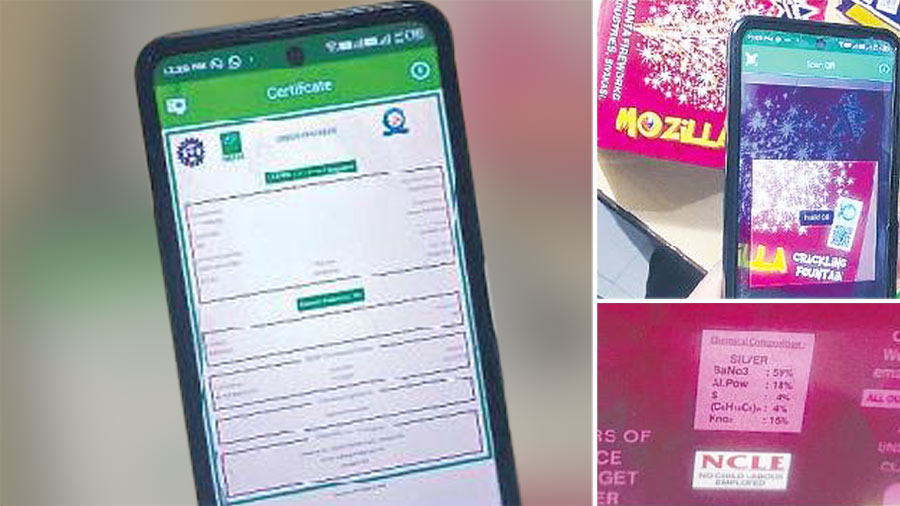
A valid CSIR-NEERI certificate generated after scanning the QR code on a packet containing firecrackers manufactured in Maheshtala and (right) a firecracker packet with an invalid QR code File photograph
The Plurals has recently found that illegal fireworks – with fake QR codes and barium in constitution – are being openly sold across the city including Bazi Bazaars in violation of the Supreme Court order and environmentalists expect that unhindered bursting of such banned fireworks is likely to contribute to heightening air pollution. “Even late on November 10 night and early on November 11 morning, I heard frequent bursting of fireworks in our area; I can pretty well guess how the situation will be on Diwali night and expect large-scale violation this year with administration far reluctant compared to earlier,” said an environmentalist residing in Ballygunge.
Plummeting Air Quality Index
Incidentally, the cityֹ’s air quality index (AQI) has been plummeting sharply over the last few days turning poor to even worse as the winter sets in. On November 10, all the city-based air pollution stations recorded ‘very poor’ – AQI levels in excess of 300 - air quality during night time.
Overall, even the day AQI average has turned moderate to poor within a span of five days; actually, doubled within five days. On November 5, the day India and South Africa match was played, the AQI was 133 – moderate – while it jumped up to 282 – poor - on November 10. Poor air quality, according to the Central Pollution Control Board (CPCB), may lead to “breathing discomfort to most people on prolonged exposure”.
A scientist at the city-based Bose Institute, through modelling analysis, predicted that overall city’s air quality is likely to “remain around 200-230 (poor)” during Diwali. “Though overall the city’s AQI is likely to remain poor during Diwali, various regions within the city may turn very poor,” said Abhijit Chatterjee, the scientist. The study considered air pollution data from Shyambazar, Ultadanga, Rabindra Bharati in north Kolkata, and Baishnabghata, Gariahat, Minto Park in south Kolkata for the assessment.
Activist demands total ban in urban areas
“Air quality in Kolkata and also in urban areas of West Bengal are sharply deteriorating and … detrimental to public health. In this context any further use of fireworks in urban areas (including) Kolkata will lead to the further deterioration of the air quality and therefore any use of fireworks needs to be prohibited on emergent basis …” wrote Biswajit Mukherjee on behalf of non-profit Paribesh Academy to senior officials of state including chief secretary.
Mukherjee, the retired chief law officer in the state pollution control board, pointed out that Maharashtra has already banned all kinds of fireworks bursting during World Cup matches despite its air quality being better than Kolkata.
“If the pollution level gets high, the players will face difficulties during the match” opined a former Bengal cricketer.
